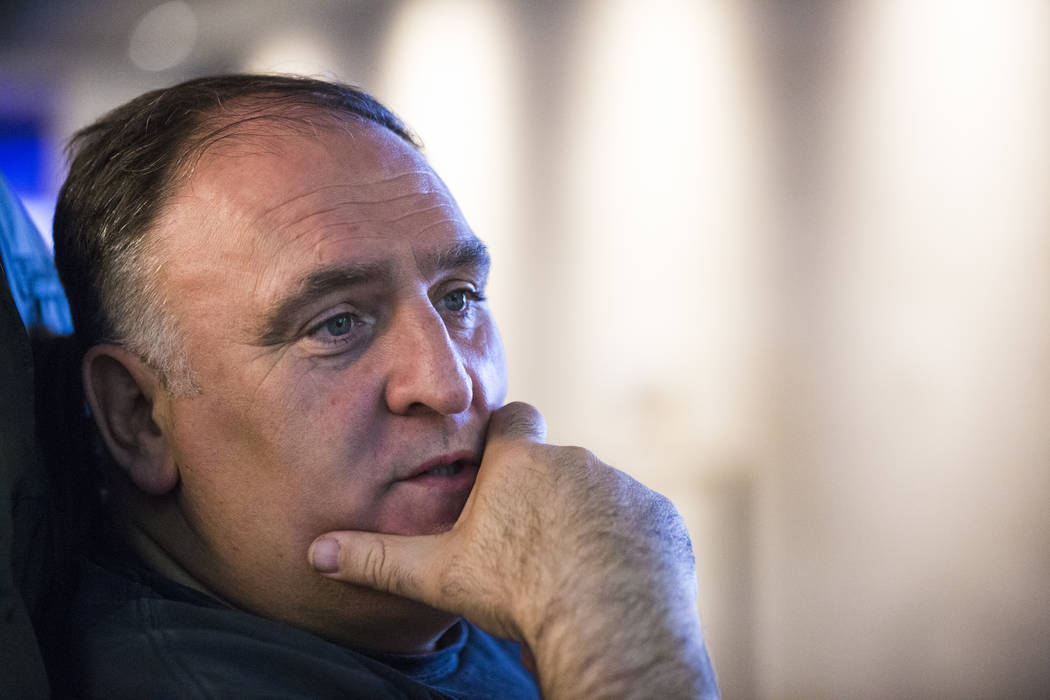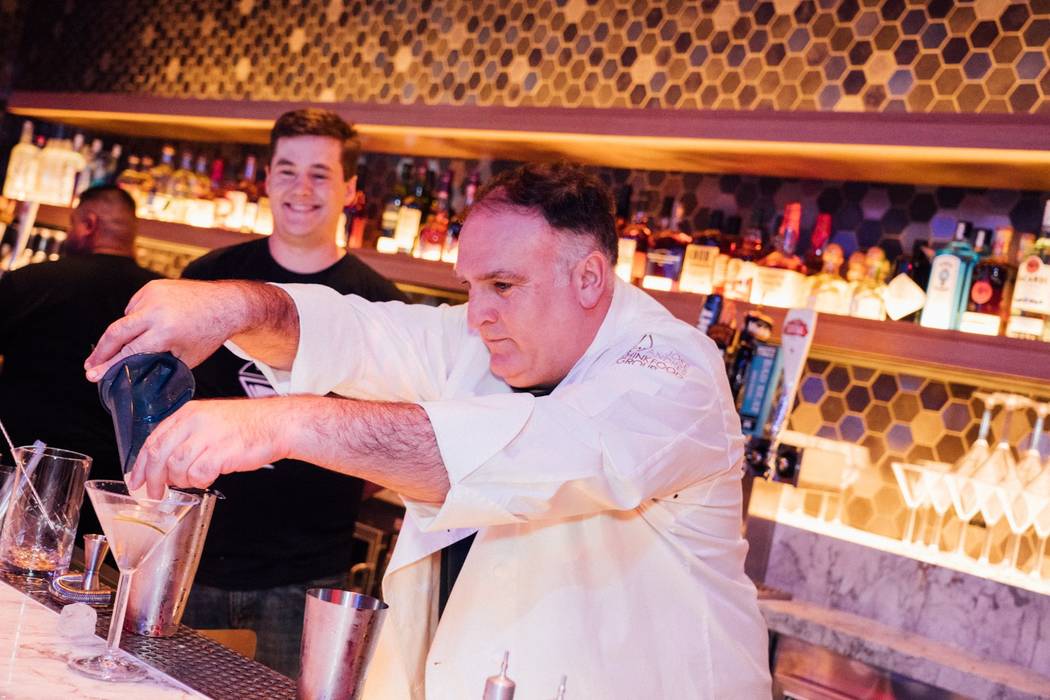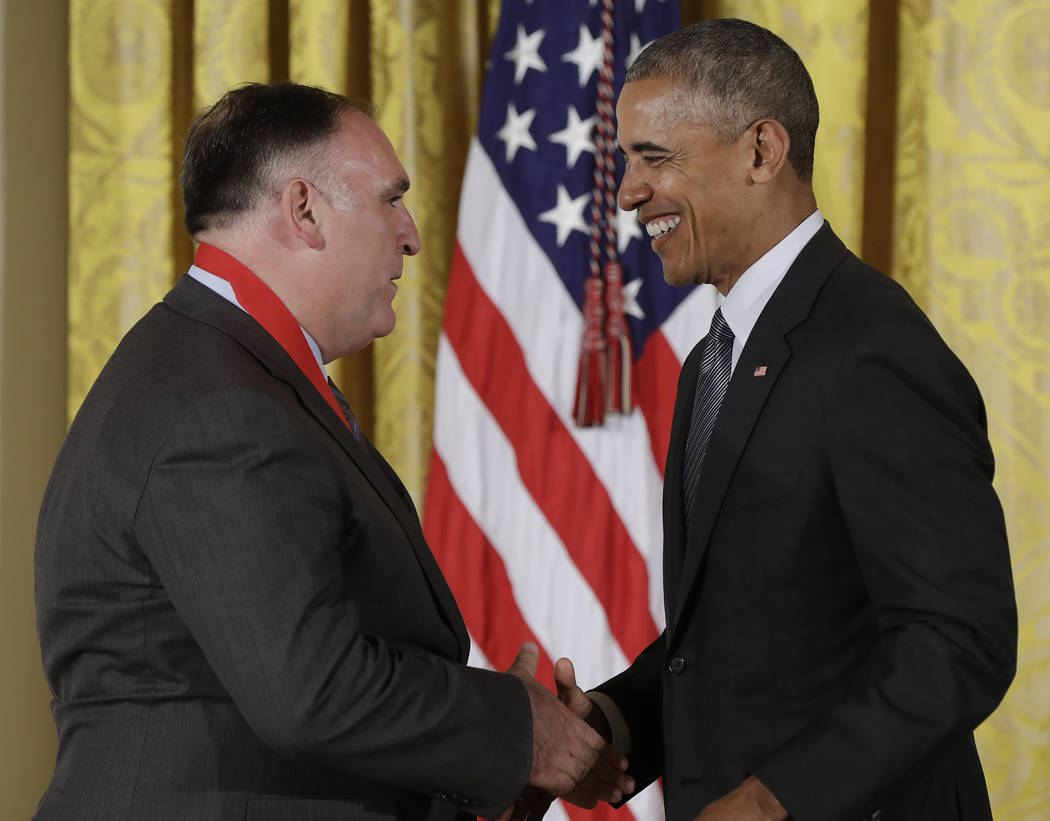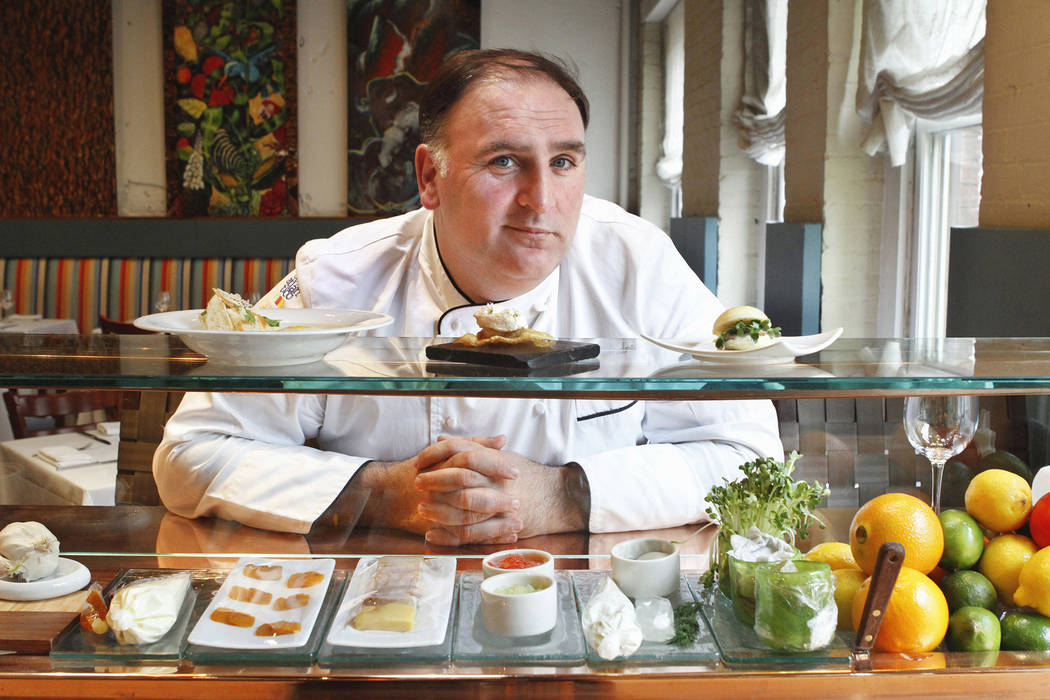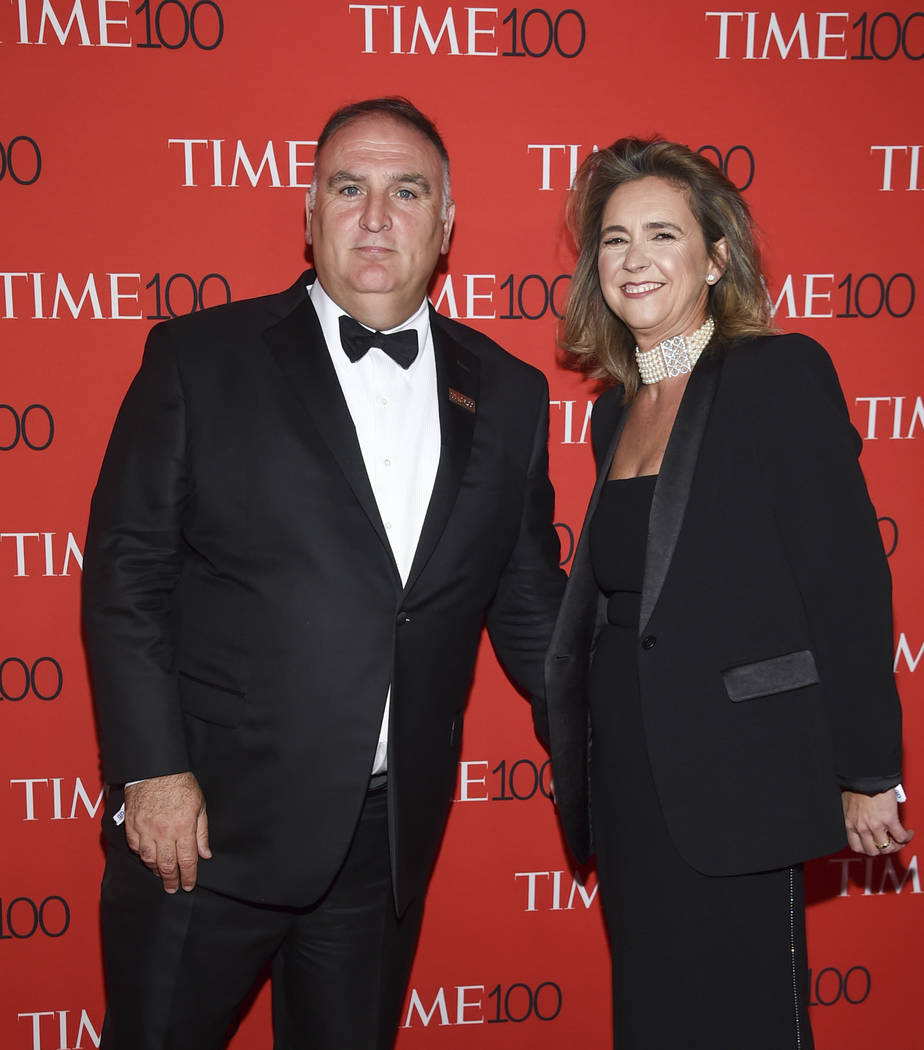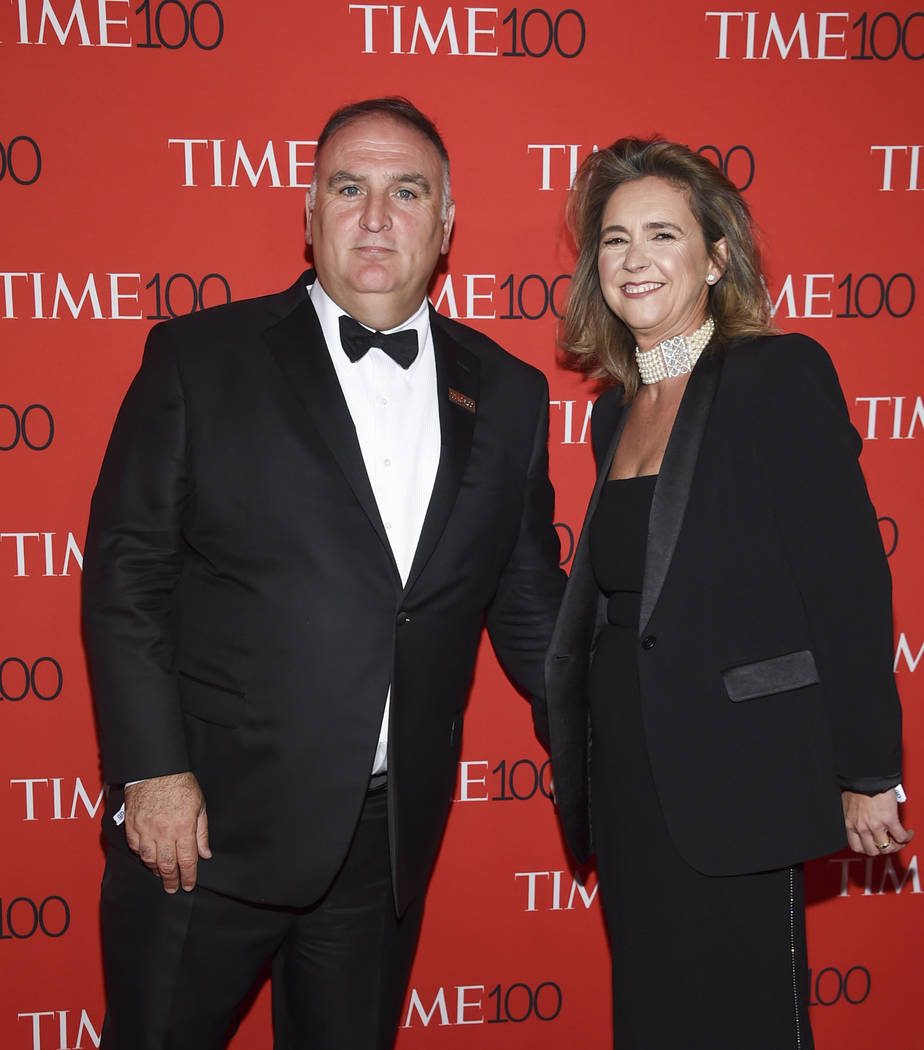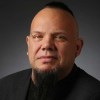Chef Jose Andres on his worldwide mission to feed, educate people
Mention his reported Nobel Peace Prize nomination to Jose Andres, and the most you’re likely to get in reply is a shrug, perhaps a smile. It’s understandable; the nominating process isn’t a public affair.
The chef is a bit more willing to talk about World Central Kitchen, the organization he founded in the wake of the 2010 earthquake in Haiti. But even then, you usually have to ask.
“We don’t do press releases,” says Andres, 49, a native of northwestern Spain.
Going where the need is
World Central Kitchen usually ends up in the news amid coverage of a humanitarian disaster. Reporters and camera crews arrive to cover the aftermath of a hurricane, raging wildfires or refugees massed at the border, and there’s World Central Kitchen, on the ground, feeding people.
I think our profession has so much more to do. Because food touches everything. Food is the DNA of who we are. Food is history. Food is science. Food is health. Food is hunger. Food is the environment. Food is immigration. It’s everything.
Jose Andres
Because Andres’ public statements on his work are often limited to tweets to assure his family he’s safe and let other aid workers know where to find him, most of World Central Kitchen’s work goes unreported.
“I probably have been to Haiti more than 25 times,” the Washington, D.C., resident says. “And I’ve been asked hundreds of times to bring journalists with me. And I always say no, (unless) they’re good friends.”
While World Central Kitchen operates around the world, Haiti is particularly special to Andres.
“Haiti became important for me and I’ve been going nonstop three, four times a year, staying a week or two weeks every time, when nobody was looking. And I’ve been back after two or three different hurricanes.”
There, and in nations such as Brazil, Cambodia, Cuba, Dominican Republic, Nicaragua and Zambia, the group focuses on building kitchens in schools, educating people on food safety, training cooks and hospitality workers and building restaurants. The man who has pioneered revolutionary cooking techniques and operates some of the most exclusive restaurants in the world sees his role as a chef as something incredibly basic and universal.
“I think our profession has so much more to do. Because food touches everything. Food is the DNA of who we are. Food is history. Food is science. Food is health. Food is hunger. Food is the environment. Food is immigration. It’s everything.”
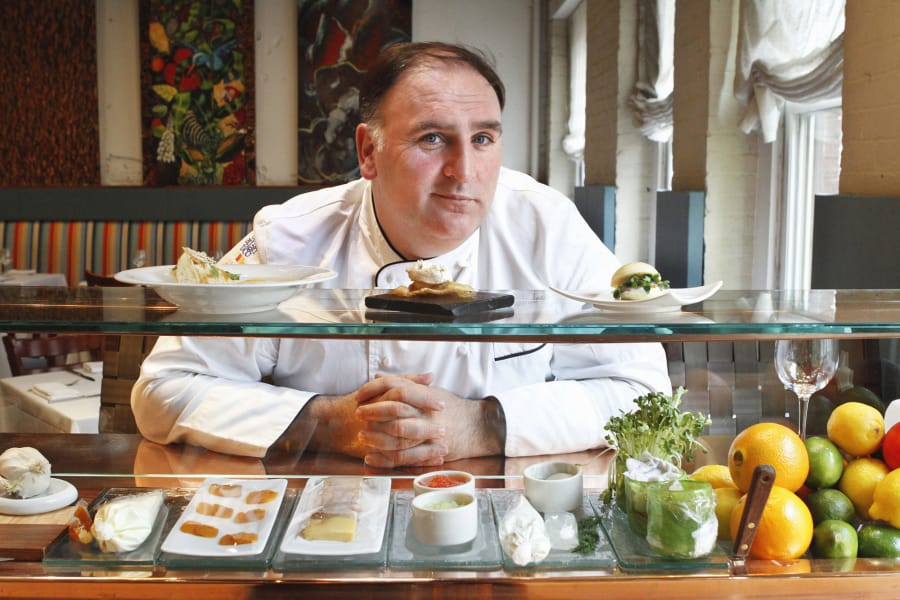
Cleaner cooking
Yet there’s one culinary issue that stands out above the rest for this chef: clean cooking. Worldwide, more than 3 billion people still cook using crude stoves or open fires fueled by wood, charcoal or dung. It’s an issue with myriad effects, from health repercussions resulting from breathing in the smoke to the environmental impact of deforestation. For a man known for cooking massive pans of paella over roaring wood fires, it was a harsh reality check.
“I came to realize that the same kitchen you and I take for granted, the same kitchen that gives me my profession, the possibility to succeed, is the same kitchen that doesn’t give an opportunity to millions of families, and especially the women, to succeed. And I need to make sure as a cook that my profession gives opportunities to the many around the world.”
The chef toyed with the idea of changing the way he cooks in his restaurants, but eventually decided against it. Instead, he’s concentrating on converting the ways of cooking in developing nations to cleaner methods, including solar kitchens such as one that powered his concession at the 2014 Life Is Beautiful festival.
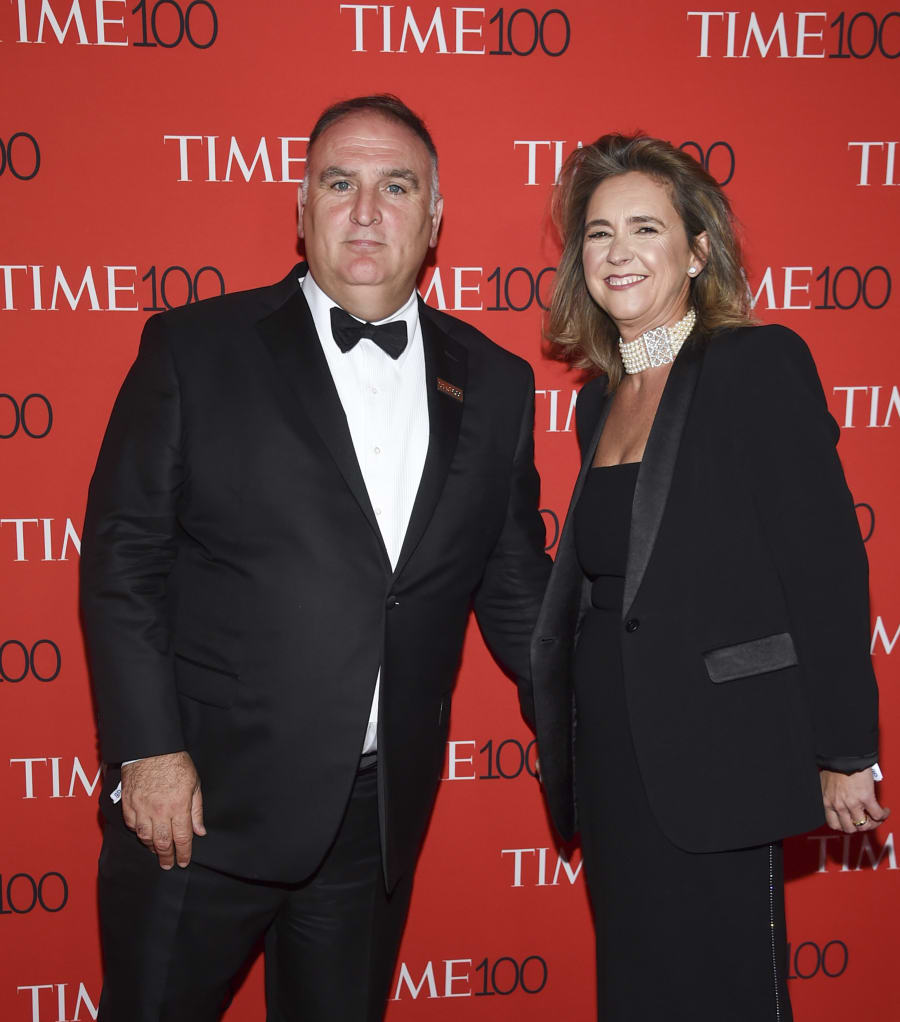
“For me, solar is the low-hanging fruit, to show that we can feed humanity with zero emissions and zero cost. Besides the initial cost of the kitchen, it’s free energy for the rest of your life.”
In addition to his work with World Centra Kitchen, Andres was asked by Hillary Clinton in 2011 to serve as culinary ambassador to the United Nations’ Global Alliance for Clean Cookstoves. He says there is still much more that he and the culinary community can—and must—do.
“That’s why I didn’t just go and raise some money in my restaurant, write a little check and issue the money to a different organization. My life would be so much easier, I have no doubt about it. But everybody who knows me knows I don’t like the easy way.”
Why clean kitchens matter
World Central Kitchen’s mission is to alleviate suffering around the world. Clean cooking, however, is what Jose Andres refers to as “the heart” of the organization. In Port-au-Prince alone, the organization has permanently converted over 135 kitchens.
“It sounds like a big number,” Andres says. “But for me, I don’t feel successful. I wish we did thousands already.”
The advantages of clean cooking, such as with gas or solar power, versus open fires with wood or charcoal, are many, he says.
“Making sure the women would be healthier. Making sure the women would not burn themselves in the process of feeding their children. Making sure that women work less hours, because with charcoal they work longer than with gas. Make sure they work cleaner. Make sure they don’t get sick by inhaling the smoke.”
The current methods also directly affect education, especially among girls.
“No matter how many schools you build, if we don’t liberate the families from feeding themselves with wood or charcoal … they use the girls to pick up the wood when they are too poor to buy charcoal.”
It doesn’t end there, however. Clean kitchens protect trees, which has a trickle-down effect on an island such as Haiti.
“The cutting of the trees is reduced, and when the water comes the topsoil is not washed away. And then in the healthy mountains the water penetrates, so you don’t have these crazy mudslides that take away everything. And the farming output increases precisely because of that. And the water arrives in the ocean cleaner. … And everything starts with clean cooking stoves.”
Andres on politics
Perhaps it’s a sign of the times, or maybe a function of Jose Andres’ personality. But his work over the years has not been without political controversy.
He has engaged in a war of words with the Federal Emergency Management Agency over the response in Puerto Rico to Hurricane Maria, and he’s served meals amid the politically-charged California wildfires and to migrants amassed on the U.S./Mexican border. But Andres insists his work is not political or politically motivated.
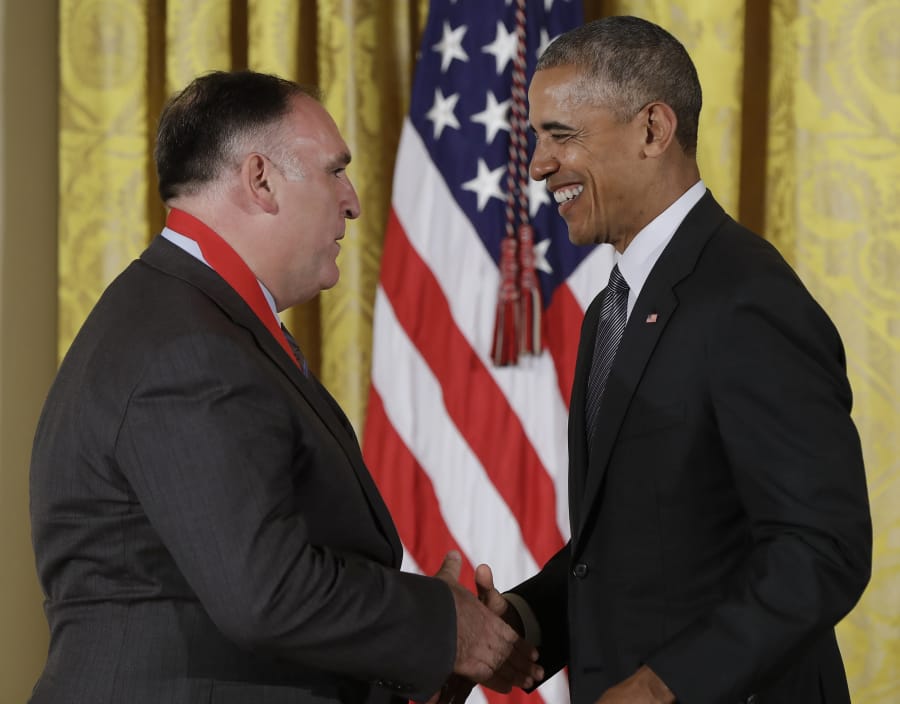
“We’ve been feeding people at the heart of the Panhandle in Florida,” he uses as way of example. “I didn’t look at whether the Panhandle was a Republican base or a Democrat base. We went there to feed Americans.”
With regard to Maria, he insists his complaints about FEMA weren’t meant to be political.
“When you see me speaking up, it’s if I don’t see (America) doing a good enough job. I will do that if they are Democrats or Republicans. We don’t care. Emergencies don’t understand political parties.”
As for his personal outlook, the chef says he has things in common with both ends of the political spectrum.
“We want to feed the people. If you are more on the, let’s say conservative end of the spectrum, that for some reason is always associated with religion, well then you could argue that I’m religious. I’m a Catholic guy. My wife is very religious. She tries to take me to church as much as she can. But then if you’re more on the liberal end of the spectrum, many people would put me at that end of the spectrum, too. And I’m very comfortable with both ends of the spectrum. I don’t understand why anybody would try to make enemies of one or the other.”
Contact Al Mancini at amancini @reviewjournal.com. Follow @AlManciniVegas on Twitter.



